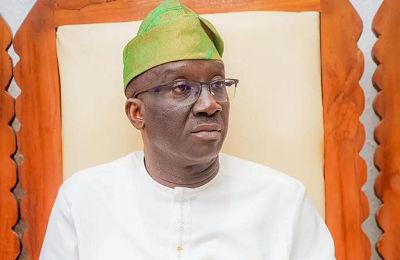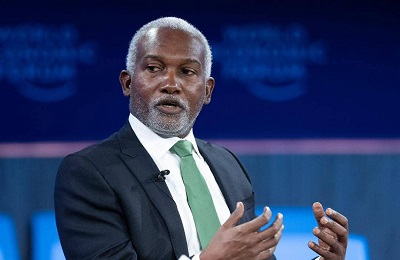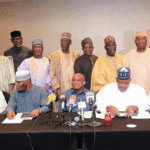CEO Ojulari admits “complicated” reality forces tough choices on aging facilities
Vienna, Austria – In a candid admission that could reshape Nigeria’s oil industry, NNPC Group CEO Bayo Ojulari revealed this week that the company may sell its struggling refineries. Speaking at the 9th OPEC International Seminar, Ojulari acknowledged that NNPC refinery rehabilitation efforts have hit unexpected roadblocks, forcing a complete strategy rethink.
The announcement marks a potential turning point for facilities that have frustrated Nigerians for decades with broken promises of renewed production.
Reality Check on Old Infrastructure
Ojulari painted a sobering picture of the challenges facing Nigeria’s aging refineries. His frank assessment at the Vienna seminar revealed why previous optimistic timelines never materialized.
“Some of those technologies have not worked as we expected so far,” Ojulari admitted, referring to rehabilitation efforts at the Port Harcourt, Warri, and Kaduna facilities.
The reality proved harsher than anticipated. “When you’re refining a very old refinery that has been abandoned for some time, what we’re finding is that it’s becoming a little bit more complicated,” he explained.
This honest assessment contrasts sharply with years of confident predictions about Nigeria refineries returning to full operation. The Port Harcourt refinery briefly sparked hope when it resumed crude oil processing last November, only to shut down again for maintenance in May.
The cycle of promise and disappointment has become all too familiar for Nigerians who continue importing refined petroleum products despite sitting on massive crude oil reserves.
All Options on the Table
The NNPC chief made clear that everything is under review as the company faces hard truths about its refinery operations. A comprehensive strategy assessment will conclude before year-end, potentially changing how Nigeria handles its refining capacity.
“We’re reviewing all our refinery strategies now. We hope before the end of the year, we’ll be able to conclude that review. That review may lead to us doing things slightly differently,” Ojulari said.
When pressed about potential sales, he didn’t dodge the question. “Sale is not out of the question. All the options are on the table, to be frank, but that decision will be based on the outcome of the reviews we’re doing now.”
This openness to NNPC refinery sales represents a significant shift from previous positions that emphasized rehabilitation over divestment. The pragmatic approach suggests NNPC leadership recognizes that continuing current strategies may not serve Nigeria’s interests.
Private sector involvement could take various forms, from partnerships and management contracts to complete ownership transfers. International oil companies with refining expertise might see opportunities in Nigeria’s strategic location and crude oil access.
The $20 Barrel Problem
Beyond refinery troubles, Ojulari revealed another sobering reality about Nigeria’s oil operations. NNPC operating costs have reached $20 per barrel, significantly above global benchmarks and eating into profitability.
“The operating cost right now in Nigeria is hovering over $20 per barrel, which is quite high. Part of that is because of the investment we’ve had to make in terms of security of our pipelines,” he explained.
This figure tells the story of an industry under siege. Pipeline vandalism, oil theft, and security challenges have forced NNPC to spend heavily on protection measures that other oil producers don’t face.
The security investments include surveillance systems, armed guards, and infrastructure hardening across thousands of kilometers of pipelines. These costs compound the challenges facing Nigeria’s oil sector as it competes in global markets.
The $20 per barrel cost becomes even more concerning when compared to countries like Saudi Arabia, where production costs remain well below $10 per barrel. This gap affects Nigeria’s competitiveness and profit margins.
Hope Amid the Challenges
Despite acknowledging significant problems, Ojulari expressed cautious optimism about Nigeria’s production potential. The company targets reaching 1.9 million barrels per day by year-end, up from current levels.
This production increase depends on improved security conditions and operational stability. NNPC believes recent investments in pipeline protection will reduce theft and vandalism, allowing more oil to reach markets.
The target also reflects broader efforts to restore Nigeria’s position as Africa’s largest oil producer. Recent months have seen gradual production increases as security measures take effect and infrastructure improvements progress.
Success in reaching production targets could help offset some of the financial pressures driving the refinery review. Higher production volumes would spread fixed costs across more barrels, potentially improving overall economics.
What This Means for Nigeria
The potential refinery sales represent more than corporate restructuring. These facilities symbolize Nigeria’s long-frustrated ambitions to add value to its crude oil rather than exporting raw materials and importing refined products.
Selling to capable operators might actually serve this goal better than continued struggles with rehabilitation. Private ownership could bring technical expertise, operational efficiency, and capital investment that NNPC has struggled to provide.
The decision will likely face political scrutiny given the symbolic importance of domestic refining capacity. However, Ojulari’s pragmatic assessment suggests NNPC leadership prioritizes results over politics.
By Abdullah Korede








